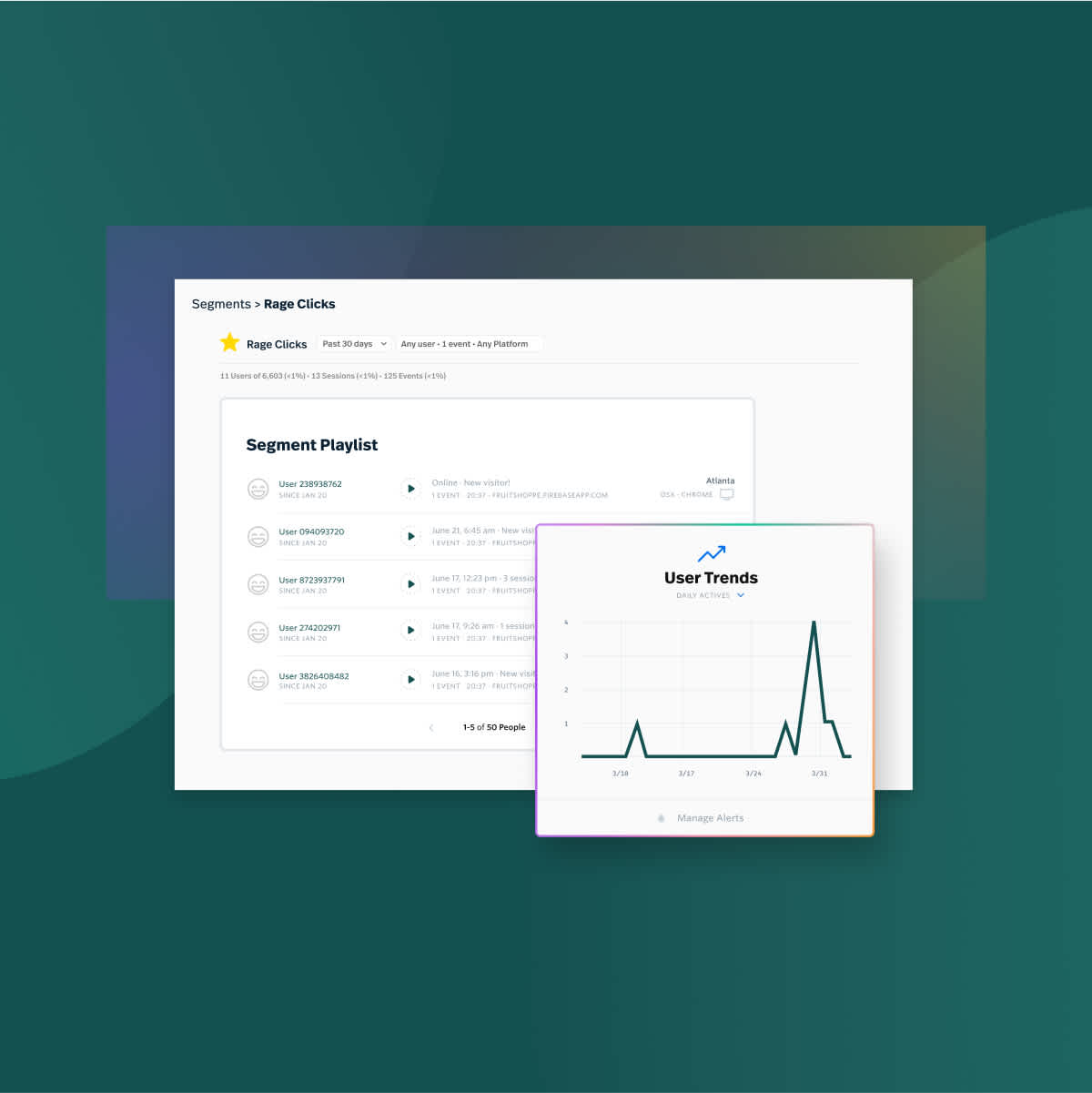How data democracy influences organizational alignment and productivity
In today’s data-saturated landscape, the way organizations handle and leverage data is a defining factor in customer experiences and overall business success. The teams that are excelling have achieved a high level of data democracy.
At its core, data democracy makes information accessible and actionable for everyone within an organization, not just the data scientists or IT experts. This inclusive approach ensures that each team member is equipped with the best available information, empowering them to make well-informed decisions, no matter their role or department.
Fullstory partnered with Product-Led Alliance to craft a comprehensive guide on how data democracy is influencing organizational alignment and productivity. Continue reading to explore four key findings from this guide based on real-world data gathered from product professionals.
To get the full research and all insights on how data democracy can transform your organization, download the complete guide now.
Key finding 1: Almost everyone agrees data democracy is essential for success
One of the most resounding revelations from the polling is the near-unanimous agreement on the importance of data democracy. A staggering 87% of surveyed product professionals identified “cross-team collaboration and data sharing” as essential to achieving organizational goals.
While the importance of data democracy is well-recognized among product professionals, actually achieving data democracy is a work in progress at most companies.
When asked to rate the state of data democracy at their organization on a scale of 1 to 10, respondents gave an average score of 6.1. This suggests the concept is gaining traction, but many organizations are still transitioning. They’re grappling with the challenge of making data democracy a functional reality, balancing the need for accessibility with issues related to data quality, security, and interpretation.
Key finding 2: Data silos are really common
Data silos aren’t a myth but rather a stark reality within organizations and across teams. Almost four in five respondents (77%) indicated that they “frequently” encounter data silos in their work, and another 17% suggested that they “occasionally” experience data silos.
What’s the best path forward for breaking down these barriers? According to the polling data, 69% see software centralization as a way forward, while only 6% disagree with software centralization as a solution.
Key finding 3: A lack of data democracy has consequences
Absent or incomplete data comes with repercussions that hold back teams and entire organizations. Inaccurate decision-making was cited by 42% of respondents as the primary challenge associated with incomplete data, making it the most common consequence.
The impact doesn’t end there. A higher risk of errors and increased operational costs were highlighted by 17% of professionals. Other effects include missed business opportunities (14%) and team misalignment (8%).
As for productivity, respondents ranked “duplicated work and inefficiencies” as the most crippling consequence of data silos, followed by hindered communication and decision-making.
Key finding 4: Successful data democratization delivers serious benefits
The polling data makes it clear that a data-driven culture is essential to the success of product teams. A robust 77% of respondents labeled this type of culture “extremely important,” while the remainder deemed it “somewhat important.” Let’s examine two case studies to explore the benefits of embracing data democracy.
Flight Centre: Sharing real-time customer insights
Flight Centre faced the challenge of streamlining customer experiences across a complex network of software and suppliers. It harnessed Fullstory’s behavioral data platform to democratize real-time customer insights. The result? A 22% reduction in booking errors and a 24% uptick in feature usage—all within three months. Leveraging features like Session Replay and Dev Tools, Flight Centre unlocked actionable insights, driving product adoption and financial success.
Pinnacle Pet Group: Creating better customer experiences
Pinnacle Pet Group (PPG), a European leader in pet insurance, aimed to sustain high-quality customer interactions despite digital growth and challenges like bot interference. With Fullstory’s platform, the company achieved real-time error detection and insightful analytics.
The impact was compelling: a smoother user journey, reduced customer frustrations, and more accurate performance metrics. By democratizing access to user-centric data across teams, PPG expedited problem-solving and enriched the customer experience, positively affecting the bottom line.
As these case studies demonstrate, the strategic adoption of data democracy leads to accelerated problem-solving, enhanced customer experiences, and, ultimately, a more profitable enterprise.
The path forward for data democracy
The polling data reveals a clear consensus: Data democracy is vital for organizational success, but challenges like data silos and the persistence of transitional phases make realizing data democracy difficult. Despite the challenges, organizations that commit to breaking down these barriers reap significant benefits, including accelerated problem-solving and bottom-line growth.
Download our complete guide for full poll results and in-depth insights into the current state of data democracy. Empower your organization with the knowledge to navigate the evolving data landscape and achieve operational excellence.






